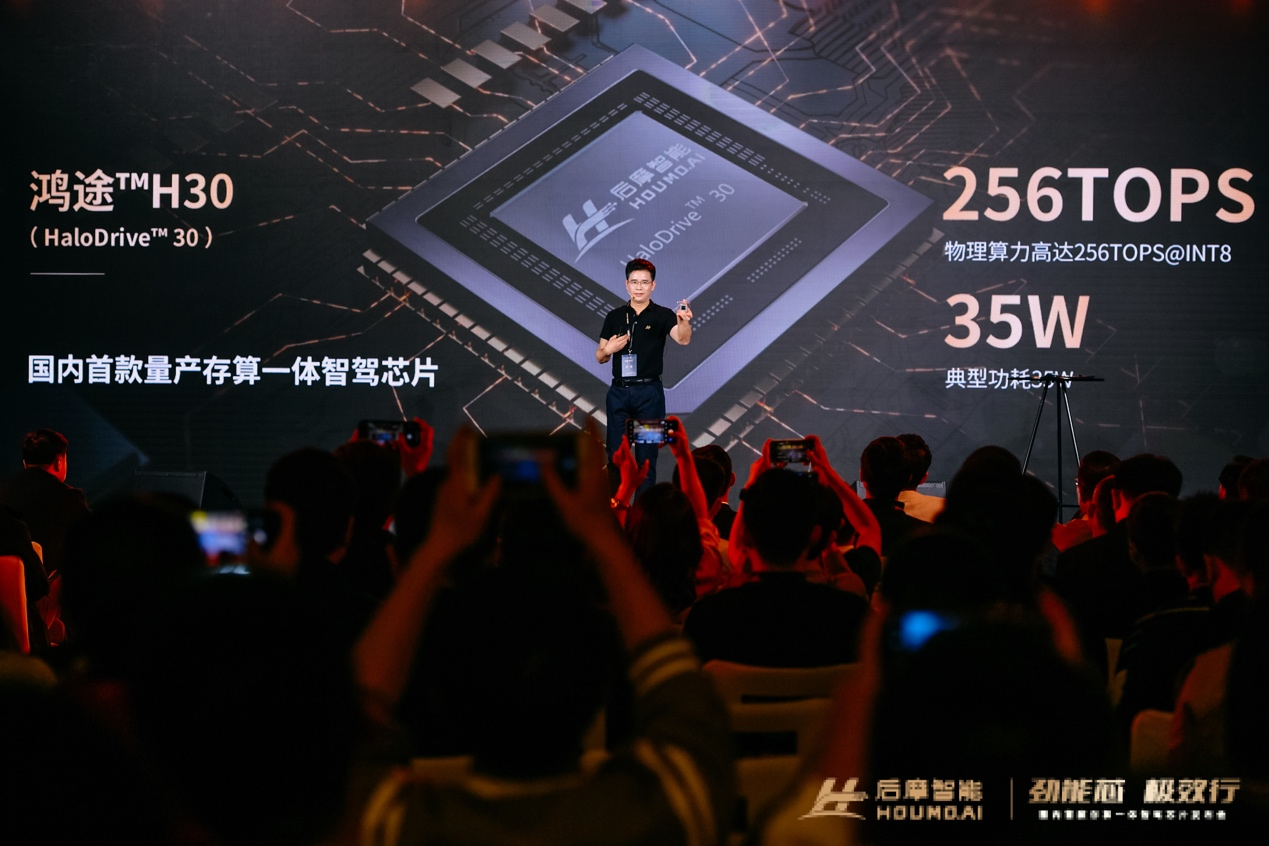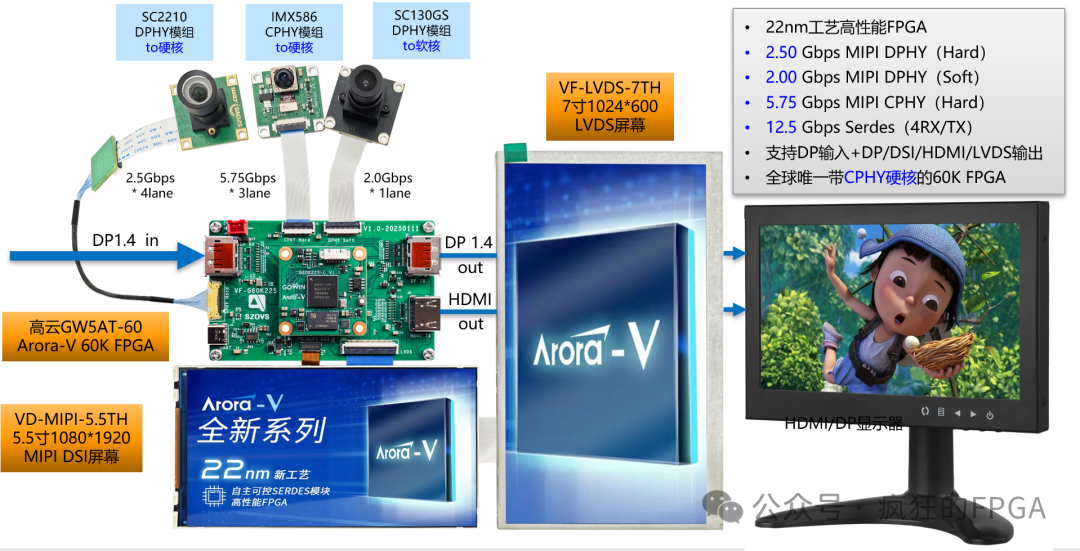
By Greg Gao
(JW Insights)May 11 -- Houmo.AI(后摩智能), a Chinese AI chip startup, launched the county’s first compute-in-memory chip for intelligent driving, the Hongtu H30, on May 10.

The Hongtu H30 chip adopts 12nm process, with a maximum computing power of 256 teraflops and a typical power consumption of 35W. This chip marks a new chapter in the large-scale application of integrated storage and computing, said the company.
In the next 3-5 years, L2, L2+, and L2++ advanced assisted driving will continue to dominate the auto market as standard equipment for intelligent vehicles. With the rapid development of artificial intelligence technology, as an important cornerstone of intelligent driving, the demand for autonomous driving chips will continue to surge, according to industry insiders.
Wu Qiang, founder and CEO of Houmo.AI, said: “Houmo.AI firmly chose to innovate the underlying architecture of integrated storage and computing to achieve the ultimate breakthrough in AI computing efficiency since its foundation. The architecture combines storage and computing, which is closer to the computing method of the human brain than the traditional architecture. It has a computing efficiency much higher than that of the traditional method.”
Chen Liang, co-founder and vice president of R&D of Houmo.AI, said, “Hongtu H30 has achieved six major technological breakthroughs with an innovative architecture integrating storage and computing, namely, large computing power, full precision, low power consumption, suitable for auto, mass production and scalability & versatility”.
Established in 2020 and based in Nanjing, eastern China’s Jiangsu Province, Houmo.AI is the first domestic company dedicated to large computing power chips based on Compute-In-Memory technology. The company’s high-computing and low-power IC and industrial solutions are used in edge-computing devices such as unmanned vehicles, generic robots, and cloud reasoning.
RELATED
-
The IC design subsidiary of China’s listed IC distributor P&S completes testing of its first MCU product for automotive standard
11-20 16:26 -
Chinese electronic component company CETC mass produceds its Beidou satellite communication module for China’s major EV maker
11-20 15:55 -
China’s PC maker Lenovo will launch AI-powered PCs after reporting strong revenue growth
11-17 16:04









